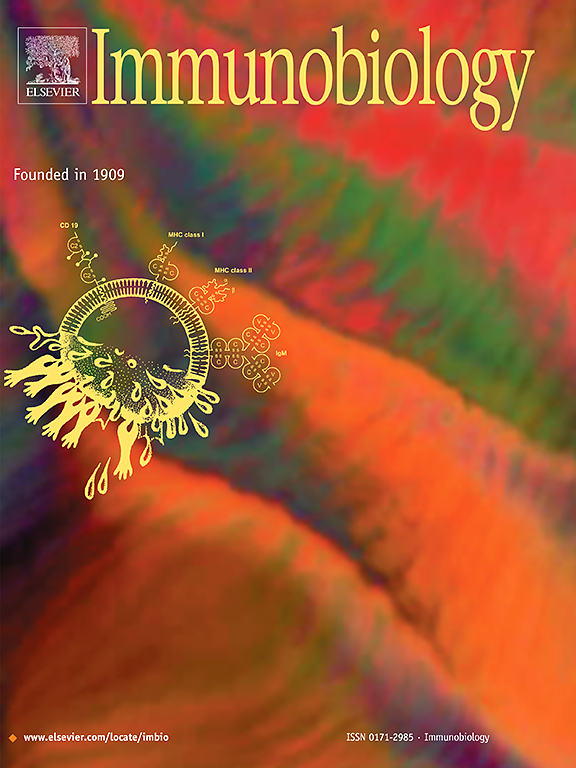Low peripheral blood B lymphocyte count predicts poor outcome in patients with multiple myeloma
IF 2.3
4区 医学
Q3 IMMUNOLOGY
引用次数: 0
Abstract
Previous evidence suggested that B lymphocytes may be involved in the progression and prognosis of multiple myeloma (MM). However, the prognostic value of peripheral B lymphocyte counts on MM before and after treatment in the novel agent era was rarely reported. Herein, we conducted a retrospective study in our center to detect peripheral B lymphocyte counts by flow cytometry in 110 patients with MM and explore the relation with survival. The B lymphocyte count was significantly lower in MM patients than healthy controls (p < 0.005). The cutoff value of B lymphocyte count at diagnosis was 49/μl in MM and 94 patients were divided into in high B lymphocyte group. Patients with low B lymphocyte count had a significant shorter progression-free survival (PFS) (p = 0.025) and a trend of unfavorable overall survival (OS) (p = 0.053) at diagnosis and after 4 cycles' induction treatments. Furthermore, Multivariate analysis showed that low B lymphocyte count at diagnosis independent of ISS stage was a significantly inferior marker for predicting PFS (p = 0.027, hazard ratio(HR) 2.281, 95 % confidence interval (CI) 1.098–4.741) and a trend for OS (p = 0.083, HR 2.394, 95 % CI 0.896–6.160). In summary, these results suggested the low B lymphocyte count was associated with poor outcome in MM patients at diagnosis and after treatment in the novel agent era.
外周血B淋巴细胞计数低预示多发性骨髓瘤患者预后不良
已有证据表明B淋巴细胞可能参与多发性骨髓瘤(MM)的进展和预后。然而,在新型药物时代,外周血B淋巴细胞计数对MM治疗前后的预后价值很少报道。为此,我们在本中心进行回顾性研究,用流式细胞术检测110例MM患者外周血B淋巴细胞计数,并探讨其与生存率的关系。MM患者B淋巴细胞计数明显低于健康对照组(p <;0.005)。MM诊断时B淋巴细胞计数临界值为49/μl, 94例患者分为高B淋巴细胞组。B淋巴细胞计数低的患者在诊断时和诱导治疗4个周期后无进展生存期(PFS)显著缩短(p = 0.025),总生存期(OS)有不利趋势(p = 0.053)。此外,多因素分析显示,诊断时B淋巴细胞计数低与ISS分期无关,是预测PFS (p = 0.027,风险比(HR) 2.281, 95%可信区间(CI) 1.098 ~ 4.741)和OS (p = 0.083,风险比(HR) 2.394, 95%可信区间(CI) 0.896 ~ 6.160)的较差指标。总之,这些结果表明,在新型药物时代,低B淋巴细胞计数与MM患者诊断时和治疗后的不良预后有关。
本文章由计算机程序翻译,如有差异,请以英文原文为准。
求助全文
约1分钟内获得全文
求助全文
来源期刊

Immunobiology
医学-免疫学
CiteScore
5.00
自引率
3.60%
发文量
108
审稿时长
55 days
期刊介绍:
Immunobiology is a peer-reviewed journal that publishes highly innovative research approaches for a wide range of immunological subjects, including
• Innate Immunity,
• Adaptive Immunity,
• Complement Biology,
• Macrophage and Dendritic Cell Biology,
• Parasite Immunology,
• Tumour Immunology,
• Clinical Immunology,
• Immunogenetics,
• Immunotherapy and
• Immunopathology of infectious, allergic and autoimmune disease.
 求助内容:
求助内容: 应助结果提醒方式:
应助结果提醒方式:


